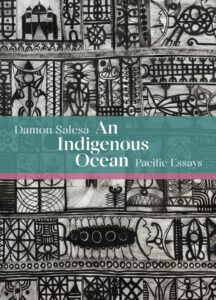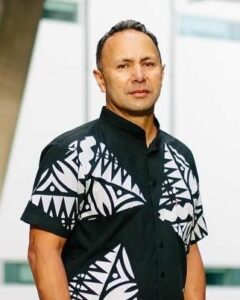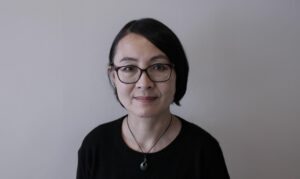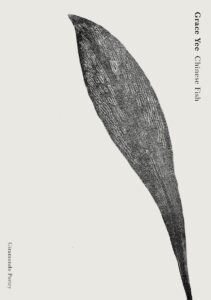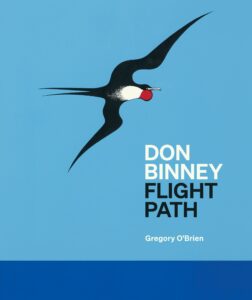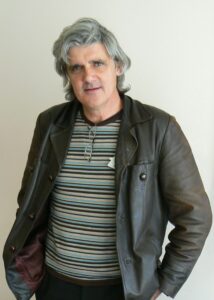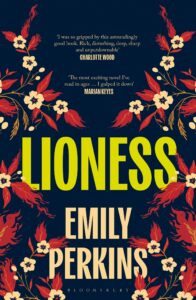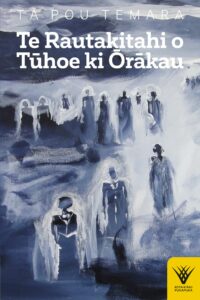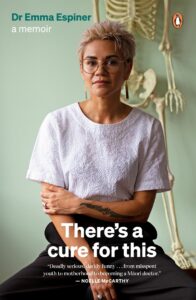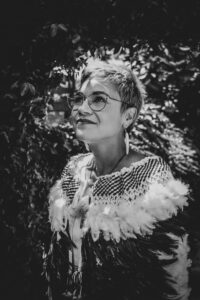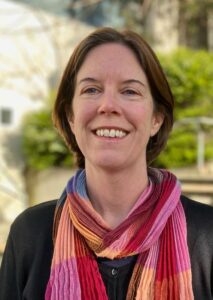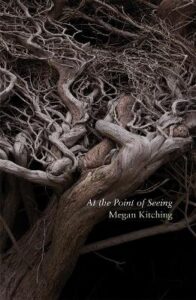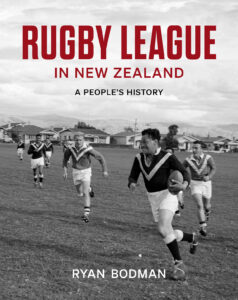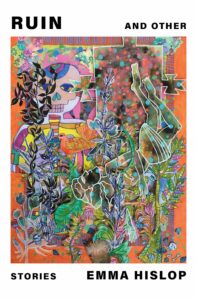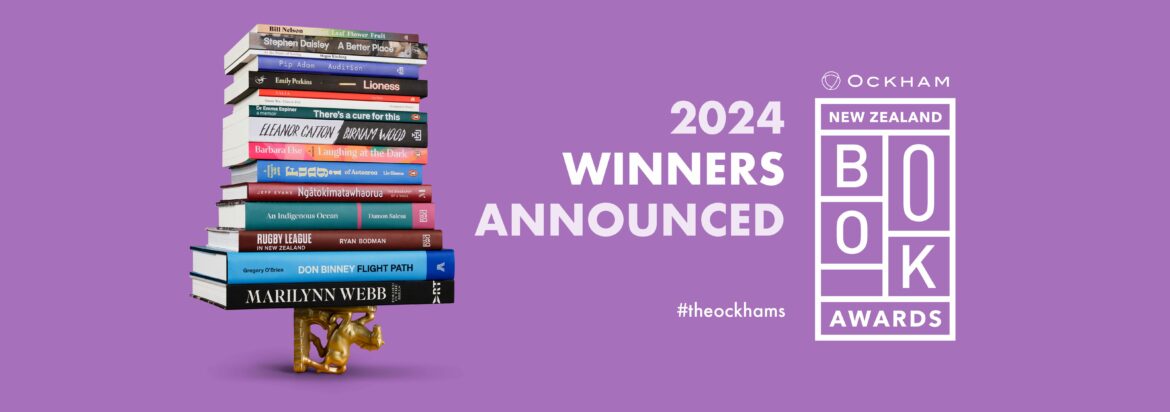
Ockham NZ Book Award Winners 2024
.
.
Winner of the General Non-Fiction Award was Toeolesulusulu Damon Salesa’s An Indigenous Ocean: Pacific Essays (Bridget Williams Books). Salesa is vice chancellor of Auckland University of Technology and a leading Pacific scholar. The convenor of judges for this category, Jim Tully ONZM, describes the book as a ‘seminal work’ that is both scholarly and ‘highly accessible’.
An Indigenous Ocean ‘weaves together academic rigour, captivating stories and engaging prose to reframe our understanding of New Zealand’s colonial history in the South Pacific,’ he says. ‘Grounded in a deep understanding of Pacific history and cultures, Salesa addresses the contemporary social, political, economic, regional and international issues faced by Pacific nations.’
.
.
The Mary and Peter Biggs Award for Poetry was won by Melbourne-based Grace Yee for Chinese Fish (Giramondo Publishing), a verse novel that has already won AU$125,000 of prizes at the Victorian Premier’s Literary Awards. Illness prevented Grace from attending the Ockhams in person, but in her speech she wrote she was thrilled that Chinese Fish – ‘a story about a family that travelled across the seas, arrived in Aotearoa, and had the audacity to call it home’ – was being ‘acknowledged here, in the country where I grew up’.
Poetry judging convenor Erik Kennedy says Chinese Fish blurs genres, dances around the page and crosses languages by fusing Cantonese-Taishanese and English, both official and unofficial. ‘It displaces the reader, evoking the unsettledness of migration. In Chinese Fish, Yee cooks up a rich variety of poetic material into a book that is special and strange; this is poetry at its urgent and thrilling best.’
The Booksellers Aotearoa New Zealand Award for Illustrated Non-Fiction was awarded to Gregory O’Brien MNZM for Don Binney: Flight Path (Auckland University Press). O’Brien is a poet, curator and biographer and in this book, category convenor Lynn Freeman says, he ‘achieved a near impossible task … He has encapsulated the artist’s full life, honestly portraying his often contrary personality, and carefully interrogating a formidably large body of work and its place in Aotearoa New Zealand’s art history.’
Don Binney: Flight Path is ‘a complete picture of this complex and creative man,’ says Freeman. ‘Equally compelling are the book’s faithfully reproduced artworks, exemplifying the best in design, layout and reproduction.’
.
The $65,000 Jann Medlicott Acorn Prize for Fiction went to Emily Perkins MNZM for Lioness (Bloomsbury). Perkins last won the top fiction prize at our national book awards in 2009 for Novel About My Wife. The other three finalists, Pip Adam, Eleanor Catton and Stephen Daisley, are also past winners in this category: Adam for The New Animals (2018), Catton for The Luminaries (2014) and Daisley for Coming Rain (2016).
The Fiction category’s convenor of judges, Juliet Blyth, says that at first glance Lioness ‘is a psychological thriller about a privileged, wealthy family and its unravelling. Look closer and it is an incisive exploration of wealth, power, class, female rage, and the search for authenticity.’ The novel is disturbing, ‘deep, smart, and funny as hell’ with multiple plotlines, its characters rendered ‘in vivid technicolour’ with a ‘razor-sharp wit’.
The 2024 Te Mūrau o te Tuhi Māori Language Award was awarded to Tā Pou Temara KNZM (Ngāi Tūhoe) for Te Rautakitahi O Tūhoe ki Ōrākau (Auckland University Press). Tā Pou is a scholar, Waitangi Tribunal member, and one of Kīngi Tūheitia’s ‘Council of Twelve’. This book on the Tūhoe men and women who went to fight with Ngāti Maniapoto in the battle of Ōrākau during the New Zealand Wars is based on oral sources through the stories told to Tā Pou by his grandfather, great-grandmother and other kuia and koroua when he was young.
Judge Paraone Gloyne (Raukawa ki Wharepūhunga, Ngāti Maniapoto) describes Tā Pou as ‘one of Aotearoa’s leading Māori public intellectuals’ and said ‘Aotearoa is fortunate to have in its canon a book of this significance.’
The first-book awards, sponsored by the Mātātuhi Foundation, are some of the oldest in New Zealand, one established in the late 1930s and another in the 40s, with a long tradition of recognising stellar emerging talent.
.
The E.H. McCormick Prize for General Non-Fiction was awarded to Emma Wehipeihana (Ngāti Tukorehe, Ngāti Porou) for her memoir There’s a Cure for This (Penguin Random House). Memoir is a frequent winner in this category, including Noelle McCarthy’s Grand (2023), Dead People I Have Known by Shayne Carter (2020); We Can Make a Life by Chessie Henry (2019); Driving to Treblinka: A Long Search for a Lost Father by Diana Wichtel (2018); and My Father’s Island by Adam Dudding (2017).
.
The Jessie Mackay Prize for Poetry is the oldest of any award at the Ockhams and this year was won by one of the finalists for the Mary and Peter Biggs Poetry Award: At the Point of Seeing (Otago University Press) by Megan Kitching. In a category dominated by university and independent presses, this is the first win for Otago University Press here since Feeding the Dogs by Kay McKenzie Cooke (Kāti Mamoe, Ngāti Kahungunu) in 2003.
.
.
The winner of the Judith Binney Prize for Illustrated Non-Fiction was Ryan Bodman for Rugby League in New Zealand: A People’s History (Bridget Williams Books). This is the newest of the best-first-book prizes, introduced in 2016, and its awards to date have been wide-ranging in subject matter: music, food, films, Māori carving, art, architecture, geography and the natural world. Bodman’s book is the first on sport to win in this category.
.
.
The Hubert Church Prize for Fiction was won by Emma Hislop (Kāi Tahu) for Ruin and Other Stories (Te Herenga Waka University Press). Four of the last five Hubert Church winners have been Māori writers: Hislop, Anthony Lapwood his story collection Home Theatre (2023), Rebecca K Reilly for Greta & Valdin (2022) and Becky Manawatu for Auē (2020).
'Character to some extent is much a construction of the reader as it is of the writer.' - Lloyd Jones

